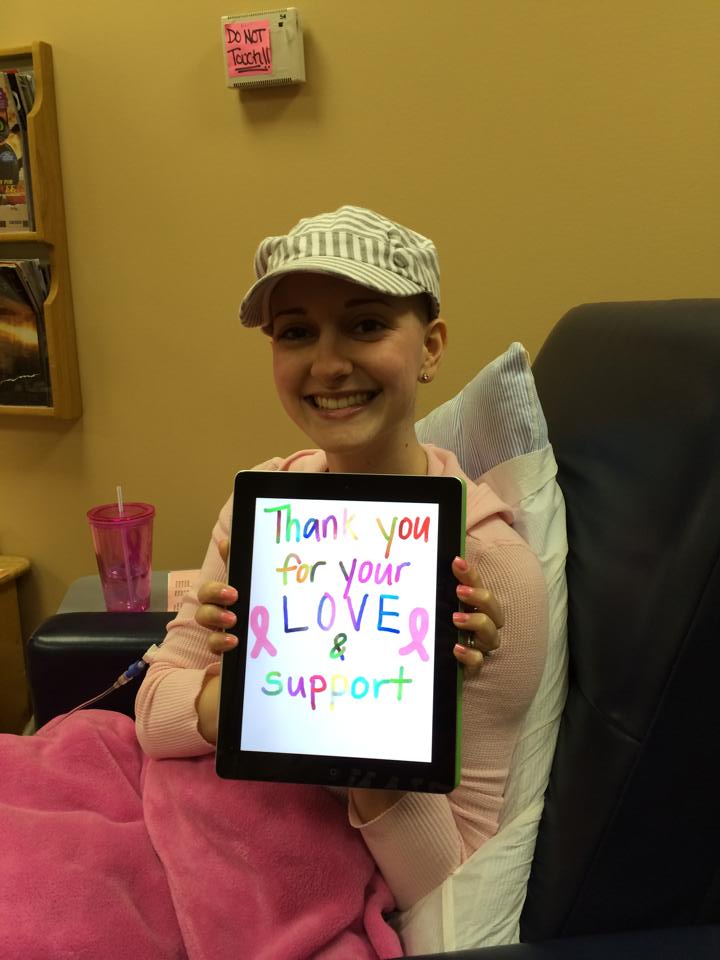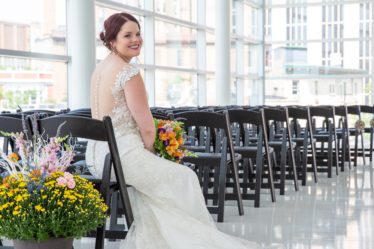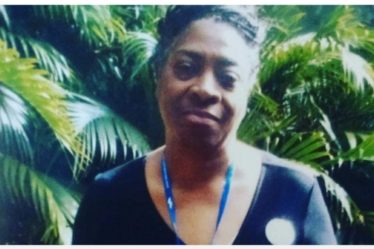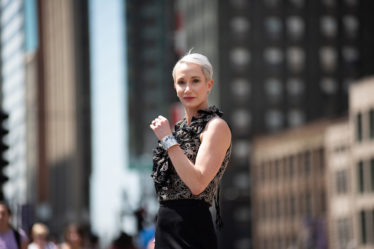
An Interview with a Stage 1 Breast Cancer Survivor


By: Jenna Lindman, Bea Wagener
I connected with Bea Wagener over Facebook. I had been trying to reach out to more cancer warriors, and she responded to a post I put out on the Stupid Cancer of Great Lakes Facebook page. Even before the interview, I was excited about her enthusiasm for participating. As I read her story, I felt kindred: we are both 29 years old, both diagnosed at 24 years old, both went through chemotherapy for the same duration of time. In our interview, she spoke of how she had a “calm” demeanor when the doctors first told her the diagnosis- something that felt all too familiar to me as well. But at the same time, our experience is so different, different types of cancers, and different kinds of emotion. It was an honor to have her share her story. Bea, thank you so much for participating in my interview and being so open about your experience.
Bea Wagener is a 29-year-old high school teacher from the north shore of Chicago. In February of 2014, at 24 years of age, she was diagnosed with triple positive Stage 1 Breast Cancer. She is currently four 4 years in remission at a one year chemotherapy treatment plan. In her free time, she enjoys dance, exercise, travel, cooking, and film.
What is the story behind how you found out you had cancer?
I had bleeding and discharge from my left nipple, so I called my gynecologists office immediately. Note: breast cancer runs in my family, my mother was diagnosed at age 36 and passed at age 42, my aunt was diagnosed at age 36 and is living. Because of my family history, these symptoms were taken very seriously. They took a sample of the blood/discharge to be tested, which ended up coming back “inconclusive,” but meanwhile he referred me to a breast surgeon to further investigate. The breast surgeon thought it was a non-cancerous ductal issue (now I don’t recall the formal name of the first diagnosis) and scheduled me for surgery to remove the duct. But she ordered an ultrasound to cover all bases. The ultrasound technician called in the radiologist and she ordered a mammogram on the spot. She pointed out what she saw as a malignant pattern in my scans and ordered a biopsy. It was ductal carcinoma. From symptoms to diagnosis was a matter of 2 weeks.
What were the emotions you felt when you were told your diagnosis?
When the symptoms started, I did what anyone would do and Googled it. The second my eye caught the word, “cancer” I thought, “this is it. It got me too.” But I was set on remaining positive and calm, even though every piece of me knew what this was. I would say that my emotions were always one extreme or another. I would allow myself some moments to break down, but most of the time I was as cool as a cucumber. When we first heard the words “cancer” from the radiologist, I was completely calm and just asked, “okay, what are our next steps?” We were led from one room to the next to meet with the breast surgeon again. She was already prepared to present the options. After a few more appointments, all in that same day, we left the hospital with a bag of books and pamphlets and a list of appointments to make and a big surgery to schedule. I called my immediate family members and closest friends on the way home, stopped to pick up dinner for my husband and I, arrived home, stopped in the driveway and then it came out. It might sound like I was in a state of shock for a few hours, but I think it was more numbness. I was determined to be alert, ask the right questions, and absorb as much information as possible from all of the care providers we saw upon the news of the diagnosis. I guess a voice in my head told me that I didn’t have time for emotions right then and there. From that day on, all through my treatment, I followed a similar pattern of staying calm and collected, going on with my life, and saving my tears for the driveway when I arrived home from work, from treatment, from a check-up, from a lunch with friends, etc.
How did you tell your family or friends and how did they react?
My immediate family and friends already knew that something was happening in the 2 weeks leading up to the actual diagnosis. I informed them of the symptoms and of how I was responding immediately by seeking medical attention. They knew about all of my appointments and knew to await the “news,” good or bad, on that day. I told them all on the phone. I asked my sister to be in charge of telling other close family members, beyond our immediate family, and I asked my best friend to be in charge of telling other close friends. The conversations were brief. Years later my sister told me that I sounded like a doctor delivering news over the phone that night. I was calm, serious, informative, and there was little to no emotion in my voice. She said that she tried to match that while she was on the phone with me, but then couldn’t stop crying for the next 48 hours.
I imagine others may have reacted this way, after hanging up with me. I told my boss, my closest co-workers, and my students in the following days once I knew the exact details and dates that I would be out. They were amazingly supportive. I could go on for pages about the support and love and above-and-beyond care I received from my colleagues. Telling my students was the hardest part. I taught middle school at the time and was very close with my students. Most of them cried and it broke my heart into little pieces.
What was your treatment plan? How long was it? Did you experience side effects?
First, I had a bilateral mastectomy with expanders, which would be expanded over the following months and then replaced with implants. The surgery was the easiest part for me, being a young and physically fit person. I healed very well.
In the few weeks while I healed from the surgery and was home from work, I had genetic testing done, which is where we discovered the BRCA2 mutation. This didn’t change my treatment plan because my care providers and I had already decided on the most aggressive course anyway, but the genetic mutation reinforced this decision.
I also underwent fertility preservation (IVF without the implantation part) during this time to ensure that after chemotherapy, I could still have children. 4 weeks after surgery, 2 days after IVF, I had chemotherapy treatment number 1 out of 18. I had a cocktail of TCH: Taxotere, Carboplatin, and Herceptin. I went to treatment every 3 weeks and I had a port put in. There were SO many side effects, too many to name, but the worst were: mouth sores, menopause and everything that comes with it, bone pain, anxiety, and fatigue. My hair fell out within 2 weeks of the first treatment. Symptoms have a cumulative effect, so it got worse with time. For me, personally, the worst side effect was NOT feeling like a 24 year old. I had my implants put in during treatment and also had my fallopian tubes removed (a BRCA2) precaution.

Bea during a treatment 
Bea, being a warrior against cancer.
How did cancer change your daily routine? Did it impact your relationships?
I am routine-oriented, I am a busy body, I am stubborn, and I am an over-achiever. Totally willing to admit all of these things! I decided that cancer treatment was not going to change my daily routine one bit more than what was absolutely necessary. I obeyed when I was on exercise restrictions due to surgery, but the minute those restrictions were lifted, I was back on my gym routine. I didn’t quit any of the activities I was already committed to such as my master’s degree, which I completed during treatment, sponsoring student council at school, performing in The Nutcracker ballet at my dance school, and more. This was very important to me and helped me feel in control and like I wasn’t “losing time.”
I took a lot of notes in my journal and quickly learned that my symptoms followed a pattern. The day after treatment was typically not that bad because the meds they infused with the TCH were still in effect. The next two days after that were awful. So, I booked all of my treatments on Thursday afternoons. I worked half day Thursday and took off the afternoon. Then I went back to work on Friday and felt good enough to get through the day. Saturday and Sunday were terrible, and I always prepared lesson plans for Monday just in case it was too bad to leave the house. That first week post-treatment was awful, but I knew what to expect so I planned accordingly. The second week after a treatment was like getting over a bad flu. I didn’t feel awful, but I didn’t feel great. By the third week after treatment, I was close to feeling normal (my new normal) and we jam-packed our social calendar with events (including a vacation) because that’s when I was feeling best.
My relationships remained the same, for the most part. Aside from my husband, my sister and my mother-in-law were like angels from heaven for me. The three of them checked on me constantly, practically waited on me hand and foot, and sometimes I could feel them share my suffering with me. But I knew those three would be amazing. The people that surprised me the most were my co-workers and my husbands co-workers. They were incredible. The relationship I feared for the most was my marriage. My husband and I were newlyweds. He was amazing- my rock, my nurse, my cheerleader, my nutritionist, I could go on. And though I expected nothing less, and knew that I would’ve done the same for him, I still hated that my illness had made him a caregiver at age 25. I went from being a young, fun, sexy, energized wife to being a tired, bald, aching, scarred, menopausal old lady. It took a lot of effort on my part and on his to try to remain newlyweds.
What was the hardest thing you faced while going through treatment?
The worst part was not feeling (or looking) like myself. I had to work really hard to prove to myself that I was still me.
Did you have a caretaker?
My husband was my number one caretaker. He was incredibly patient, loving, gentle, kind, and made it look easy. It’s been 4 years and I still look at him and get teary when I think about what he went through for me and what he did for me. My aunt came to live with me for two weeks so that my husband could go back to work. She was incredibly helpful because she was #1: my aunt, and #2: she had gone through all of this herself. My sister and my mother-in-law were also amazing. Both of them had this intuition for what I needed and were there every step of the way. I never had to ask for a thing.
If a friend of yours was diagnosed with the same cancer, what would you want them to know?
It’s your unique journey and you will decide how you’re going to travel it. Be kind to yourself.
What’s the best support or advice you received?
I had already decided how I was going to cope with the day to day and with my emotions, so if I received any advice about that I don’t remember it. The best advice I needed and appreciated was about the logistics like what soap and lotion to buy for my sensitive skin, where to find temporary bras for my awkward expanders, makeup and wig tips, etc.
If there was a moment(s) where you felt hopeless, how did you get through that?
I knew there was a finish line and that I would eventually get there. I looked forward to the healing process, regaining my strength, growing my hair back, etc. My husband and I planned to take our honeymoon all over again once everything was done so I had that to look forward to. The trip ended up being a gift from my sister.
Sometimes, people report feeling abandoned, scared, or feeling that no one understands them through parts (or all) of their cancer journey. Did you ever feel like this?
I definitely remember thinking that none of my friends would ever understand what I was going through. At age 24 some of them were still living at home, partying a lot, and being young and reckless. But it didn’t bother me. I believe God gives you what you can handle. I never, ever felt alone because I always had my husband, sister, and mother-in-law checking in on me and supporting me daily. I did feel scared a lot and sometimes I still do. That is the worst feeling: when you start thinking “what if…”

Was there anything someone said to you about your cancer journey that really bothered you?
Someone asked me about my symptoms once and then said, “sounds just like pregnancy.” I don’t know why that bothered me so much, but it did. I remember thinking that was such a horrible analogy. In my opinion, pregnancy is beautiful and it’s about creating life. It also made me feel like she was saying, “oh yeah, I’ve had kids and have felt the same way as you’re describing. No big deal.” Speaking of no big deal… My gynecologist, whom I LOVE, said something to me, not once, but twice, that rubbed me the wrong way and it eventually turned into a joke between my husband and I. While reviewing my history at 2 annual exams following treatment, he used the phrase “a little bit of chemo.” And I remember thinking, please don’t say little. It was ONE YEAR and it was AWFUL! Silly things to be annoyed about, but they just got to me. I know that neither of them meant to be rude or insensitive.
Is there anything that has transformed in your attitude or outlook since being diagnosed?
YES! I promised myself that I would never EVER take my healthy, strong body for granted. Most 29 year olds don’t start their days and end their days thanking God for a healthy, strong body, but I do. I realized that life is short and precious. My husband and I say, “yes” to every experience possible and say, “no” to stress as much as possible. We know we are the luckiest people in the world and we remind each other often.
Are there any challenges you face now?
I still have the worry of recurrence. I don’t think that will ever go away. But I cope with it by reassuring myself that I have an amazing care team, I had aggressive treatment, and I take very good care of myself.
Are there any resources you know about that were helpful for you?
Someone gave me a book called A Breast Cancer Alphabet and I loved it. I passed it on to a friend’s mother when she was diagnosed. I knew there were support groups available, but I never went to one. I wish I had at least once. Knowledge was important for me. I read a lot about my type of cancer and my treatment.

Note from Jenna: Sometimes the best therapy is just talking to someone who’s been there. Imerman Angels One-on-One Cancer Support was created on the belief that no one should face cancer alone. While we recognize that each life situation is unique, we connect those that are predisposed to receive a cancer diagnosis, cancer fighters, survivors and caregivers with “Mentor Angels” – a previvor, a cancer survivor or caregiver who is as similar as possible in age, gender, and most importantly, experience. Mentor Angels provide chance to ask personal questions and receive support from a peer who has been down the same road before. The service is absolutely free and helps anyone touched by any type of cancer, at any stage, at any age, living anywhere in the world. We want to ensure no one faces cancer alone -together we are stronger! Go to www.imermanangels.org for more information



